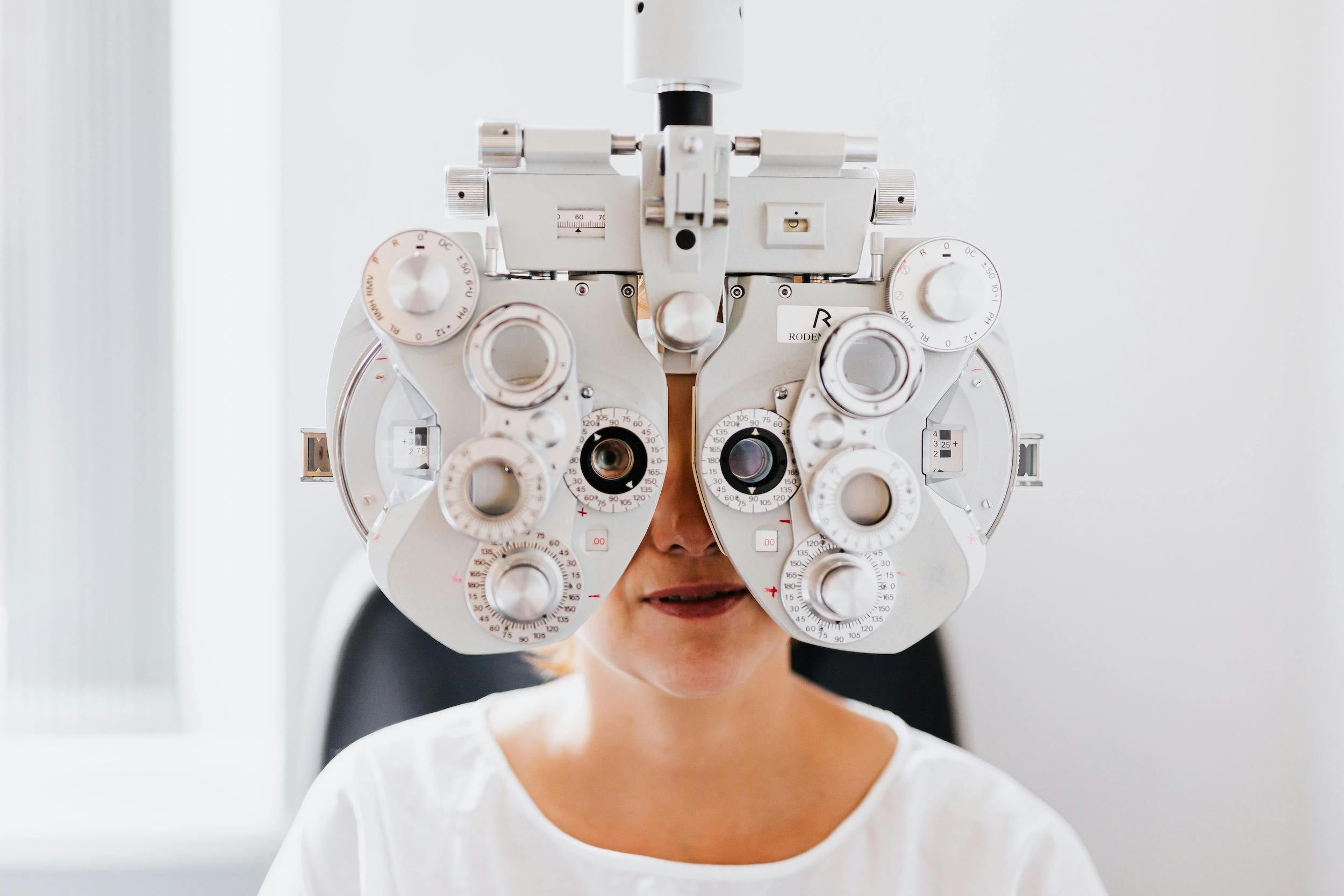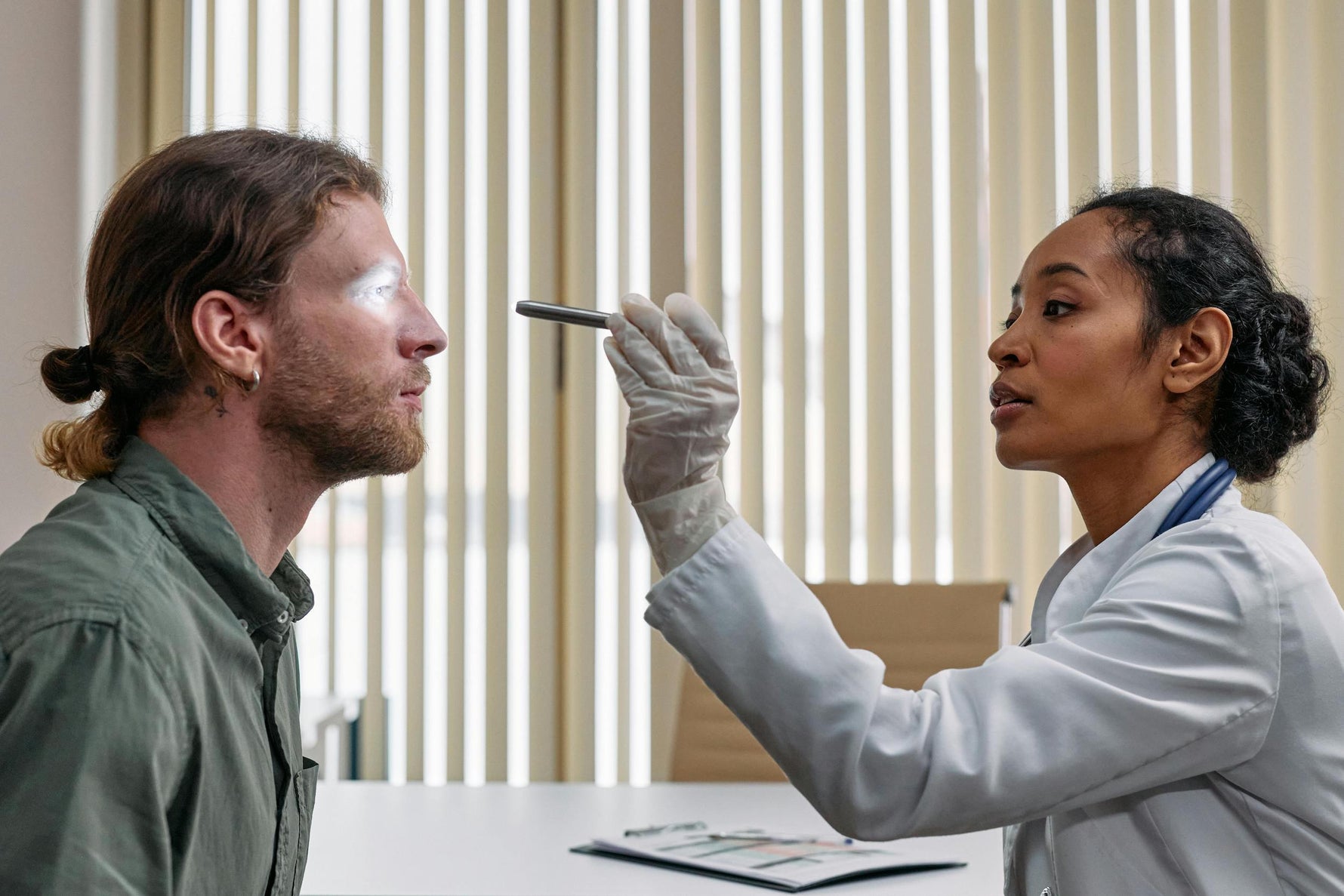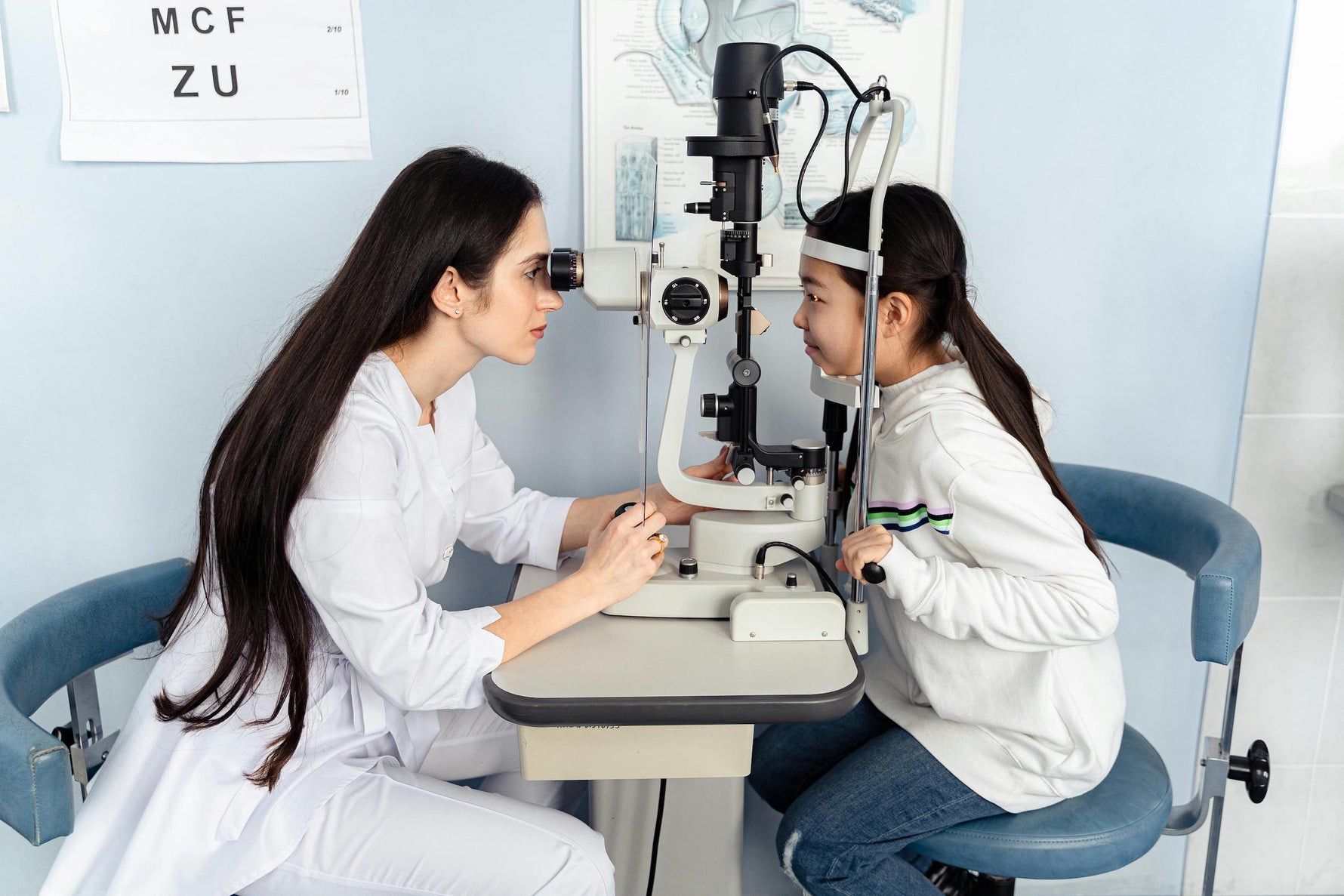Did you know?
TRY IN STORE
With ILOP, you can choose a pair of glasses online and book an in-store try-on.
Look for products with the "TRY IN STORE" button.
Simple, right?


Regular eye exams: how often to have them and why you shouldn’t postpone.
Eye health is often taken for granted until noticeable discomfort or difficulties in seeing clearly arise. In reality, prevention is the most important tool to protect your vision and detect any potential issues early.
Regular eye exams are an essential tool not only for updating your lens prescription but also for monitoring the overall health of your eyes. In this article, we will explore how often these exams are recommended and why you should never postpone them.

Why Eye Exams Are Essential
Eyes, just like the heart or teeth, require regular care. Many eye conditions—such as glaucoma, cataracts, or macular degeneration—can develop silently, without obvious symptoms in the early stages. Regular eye exams allow for early detection of potential issues and timely intervention, preventing more serious consequences. Even those without significant vision problems should undergo routine check-ups: monitoring eye pressure, the retina, and the cornea is essential to ensure everything is functioning properly. Moreover, modern lifestyles—with long hours in front of screens, exposure to artificial light, and visual stress—make these exams even more important."
Ogni quanto fare una visita visiva
The frequency of eye exams depends on age, overall health, and the presence of any vision problems. In general:
- Children and adolescents: An initial eye exam by age 3, then a check-up every 1–2 years. This is important to detect vision problems that could affect learning.
- Adults up to 40 years: Every 2 years if there are no issues; annually if wearing glasses or contact lenses.
- Ages 40–60: At least once a year, as the risk of presbyopia and age-related eye conditions increases.
- Over 60 years: Annual or even semi-annual check-ups to monitor conditions such as glaucoma and retinal degeneration.
- People with diabetes, hypertension, or a family history of eye diseases: More frequent exams as recommended by a professional.

Why You Shouldn’t Postpone Eye Exams
Postponing an eye exam means risking missing problems that could be more easily managed if detected early. A concrete example is glaucoma: if diagnosed early, it can be controlled with medications or targeted treatments; if ignored, it can lead to permanent vision damage. Similarly, uncorrected refractive errors—such as myopia, hyperopia, or astigmatism—can cause headaches, eye strain, difficulty concentrating, and reduced quality of life. Regular eye exams, on the other hand, allow for updated prescriptions and ensure clear and comfortable vision at all times.
Conclusion: Prevention Starts with an Appointment
Vision is a precious and irreplaceable asset, and taking care of it means not waiting for obvious problems to appear. Regular eye exams are the best way to prevent eye diseases, correct refractive errors, and ensure a better quality of life. At ILOP, we believe that prevention is an integral part of visual well-being. In our optical centers, we offer thorough and personalized check-ups that can detect even the slightest signs and guide you toward the solution that best fits your needs. Book your appointment today—because the difference is visible, especially when you choose not to postpone.
Book an appointment at our optical centers!
2025 ILOP S.r.l. - eCommerce: via De’ Musei 4, 40124 Bologna - Tel. (+39) 051 0826807 - P.I. 03799111202



